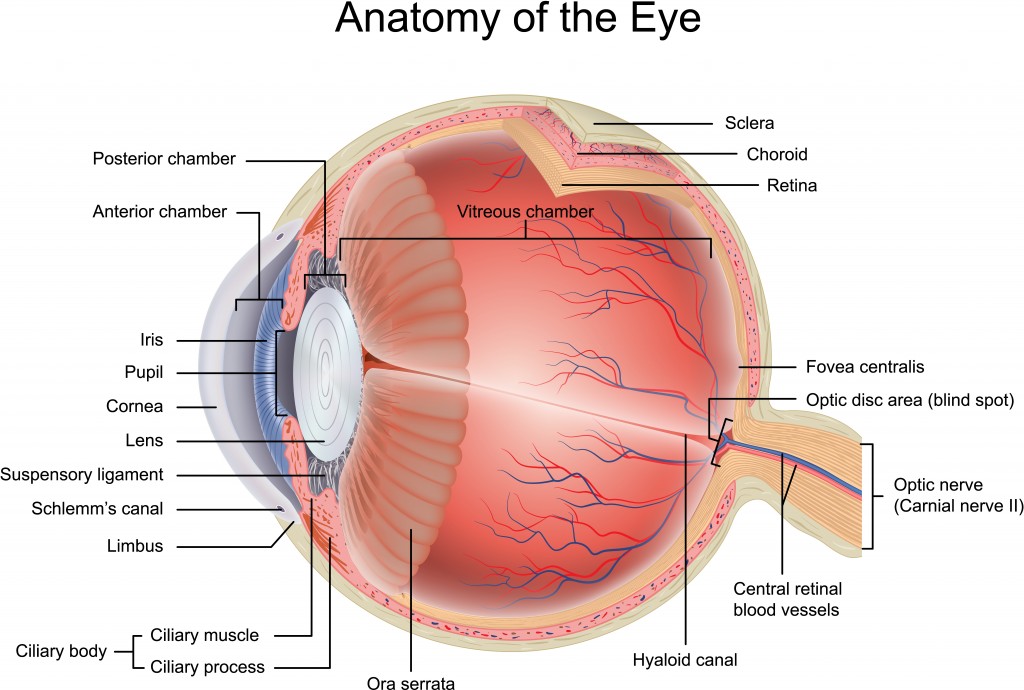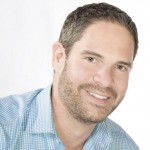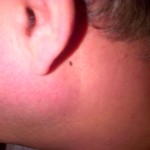· Less than five hours sleep each night is associated with serious negative health outcomes including cardiovascular problems, obesity and diabetes.
· One in six (18%) report a high impact of tiredness on daily functioning (e.g., problems staying awake, socialising, feeling enthusiastic, driving, maintaining concentration).
· Six in seven (86%) of people use some kind of tech before they go to bed with 5% checking emails, 41% using social media, and 42% watching TV.
· Furthermore, more than one in four (27.6%) use technology if they wake in the night, 11% check emails, 15% use social media and 13% watch TV.
· Poor sleep patterns may be affected by the pressures of modern life, including the pressures of work. Nearly half (42%) of those questioned from the full sample reported that they found their jobs stressful and almost one in three (30%) indicated that their work has negatively affected their sleep during the previous week.
· The findings come from a new study by the University of Leeds in conjunction with Silentnight to be presented at the Newcastle British Sleep Society conference on 22nd October.
PatientTalk.Org – Ok so we are talking about sleep or not getting enough, first question I have for you guys is what the difference between tiredness and fatigue is?
Dr. Nerina Ramlakhan – I work a lot with fatigue, chronic fatigue and burnout as well as advising on sleep as well and one of the question that I often ask my patients is what is your energy levels like at the moment out of ten, ten being really high and one being exhausted and that gives me an idea just a quick idea and it also helps them be more aware as well as sort of where they are on the tiredness fatigue scale and I would say the difference between the two is that tiredness we can all experience and sometimes we can get a bit of a tiredness dip in the afternoon, some people tend to be more tired in the mornings when they are not a morning person but fatigue is when it starts to become more evasive and it really starts to effect the quality of life and the ability to function normally so the ability to do things that you would normally be able to do and the things that you would normally enjoy and that fatigue can affect you not just physically but also emotionally and mentality as well.
PatientTalk.Org – Ok that leads onto my next question actually, what medical conditions can result from a lack of sleep.
Dr Anna Weighall – So one of the things that can happen if someone has chronic fatigue is that they can go on to develop quite serious health conditions for example , obesity, diabetes and cardiovascular disease are all more common in those who report low levels of sleep over a period of time.
PatientTalk.Org – Ok and what are the underlying reasons for people having a lack of sleep?
Dr Anna Weighall – So in a piece of research that we have recently conducted in association with silent night we asked our respondents, over a thousand people from across the UK about their sleep habits and about their ability to get a good night’s sleep, we found a couple of things that were practically key so one of them is work stress and work life balance so 30% that’s one in three of our participants reported that work affected their sleep in some way, the other thing that we noticed was that we asked people about their sleep habits ,what they do around bedtime ,what they do when they wake in the night and we found that 86% of our participants used screens or technology of some sort before they go to bed and many of them will use technology if they wake in the night as well .
PatientTalk.Org – Ok I’m sure many of us can understand the work one, in terms of insomnia how can it be treated?
Dr. Nerina Ramlakhan – Well Perry I work with sleep problems I’m a practitioner and I work at a psychiatrist clinic one day a week where we are working with really hard core sleeping patterns and the treatment will go from medication in worst case scenario though too psychology programmes into personal therapy, cognitive behavioural therapy, all the way through to practical advice and I can throw some of the tips and techniques out now but you know I teach my patients and clients all sorts of things from nutritional strategies which can help them to sleep all the way through to technology, hygiene , how to wind down before they go to bed, how to manage over busy minds and even breathing and mindfulness, if you direct your viewers and listeners to the Silentnight website we have got lots of the tips and techniques on there as well.
PatientTalk.Org – Yeah I was going to ask what is the best bedtime routine to get the most amount of sleep?
Dr. Nerina Ramlakhan – Well sleep is so individual, so personal, so what I guide my patients and clients to do is to become more aware of what it is they themselves need in order to be able to let go of the day and rest and relax and then sleep and for some people it might be having a relaxing bath, personally that would make me too hot before I got to bed so it is quite individual, things like what you watch on television even the types of books you read before you go to bed, what you eat before you go to bed, I encourage people to start becoming more aware of these things but the hour to an hour and a half what you choose to do in that time will really set you up for how you are going to sleep. So ideally you would start to disconnect form work, you would start to disconnect from technology, if you are a sensitive sleeper then don’t watch television in your bedroom watch it in another room, preferably don’t watch the news, don’t check the share prices, if you are going through a lot of stress in life then read something that’s uplifting and I even talk to my clients and patients about gratitude exercises before you go to bed keeping a gratitude journal but the idea really is to really bring the levels of stimulation down so the mind and body can prepare to relax and let go off the day.
PatientTalk.Org – What is a gratitude exercise?
Dr. Nerina Ramlakhan – Well in a nutshell and we won’t talk about this now as it’s a 60 minute exercise but right now think about the day you have had so far from when you woke up this morning until now so it’s just gone 1 o’clock and try and find so just go through your day and do it with your eyes closed and try and find as many small positive things that have happened in your day so far and you can think about them or you can take them to the next level which is what I call breathing into your heart and actually giving thanks to them and what it does is an amazing dropping of the shoulders , unclenching of the jaw, relaxing and anite sense of trust and it’s not all woo woo stuff, I mean there is a good degree of science behind this a branch of science called psycho neuro immunology ( PNI) which shows that people who regularly do gratitude exercises have more robust immune systems and their heart is stronger but it also helps promote good sleep , does that answer your question ?
PatientTalk.Org – Yes I was very interested, so how has the research in sleep conducted and what was the main findings?
Dr Anna Weighall – Ok so the research that we conducted in association with Silentnight as part of my work at the University of Leeds was really about getting a detailed picture of the nation’s sleep, the key findings are that many people are not getting enough sleep and reporting less than 5 hours sleep a night which is a worrying low amount of sleep but interestingly the majority of participants reported that they didn’t know how much sleep they thought they should be getting so it was a great awareness that ideally you should be getting around about 8 hours sleep per night which is what the NHS recommend . However when we asked people how much they intended to sleep they report something in that ball park, when we asked people to reflect on how much sleep they actually get they start to report much lower levels than that so we see what we call a sleep debt, so what people need or want in terms of amount of sleep and what they actually get in terms of their sleep behaviour.
PatientTalk.Org – Ok and what would be the one piece of advice you would give to somebody who does not or cannot get a good night’s sleep?
Dr. Nerina Ramlakhan – I would say to really start to prioritise your sleep you know make it important because often in today’s busy busy technology driving world we take our sleep for granted and we run ourselves ragged all day and then we expect ourselves to get into bed and switch off these hyper active minds and body so I would say start giving sleep the respect it deserves. Build rest into your day whenever you can, ideally every 90 minutes to 2 hour get away from technology even if it’s for a few minutes and that in itself becomes a rest , aim to get to bed before midnight at least 3 or 4 times a week and if you can go onto the Silentnight website and have a look at some of those tips because there is some really practical things that you can do just for the next week or so and it can really make a difference to your sleep , I would also say that if you are not sleeping well and it’s been going on for some time believe that it is possible to get a good night sleep , I speak to people who come to my clinic and say ‘ I’ve never slept well since childhood and my parents didn’t sleep well or my grandmother and it’s in my genes in my genetics’ and that’s part of the problem as they just don’t believe that they can sleep well and we can learn behaviours that will give us the sleep that we need and deserve and believe that you can and seek out the advice and respect your sleep.
PatientTalk.Org – Yeah I mean if like me you work in a really stressful environment how do you find the time to grab a few minutes rest when there’s people ringing you and emailing you every two seconds and you’re like please stop this madness.
Dr. Nerina Ramlakhan – Yeah I really hear what you are saying, I work in a lot of very stressful environments apart from the clinic, I go into a lot of big companies and banks, last week I worked in a trading floor of 500 bankers and I taught them how in 60 seconds they can create a physiological state of rest in their body even when things are going fairly crazy around them, so we can make the choice for 10 seconds, 30 seconds to out the phone down or sorry to be basic about this but when we go to the bathroom don’t take the phone with us or to take a 5 / 10 minute lunch break where all we are doing is eating not in front of our technology or for half an hour before we get into bed to mindfully engage with your family with no technology around you , these are choices that we can change and make and increasingly this is what I am showing people and urging them to do , if we start to value our sleep and if we get that sleep, one or two night of good sleep and you will get hooked on it and you will do what it takes to get it.
Dr Anna Weighall – And if I can just come back on that I would say that one of the reasons we wanted to conduct this research is to raise people’s awareness of the importance of sleep because I think very much we have fallen into a snooze and you lose kind of a culture and in fact if we start to realise that sleep is part of our health, part of our emotional and mental wellbeing and we start to treat it in the same way of physical exercise, we know we need exercise and we also now know that we need good sleep, we need to find gaps in our busy life’s to make sure that we are getting the things that we need for as healthy life, In our research Perry the other thing that was really important as a take home message is the very strong relationship between a good sleep and good health, so people who reported good sleep quality on the whole reported a better quality of life and that meant they were enjoying their life’s more, having more positive interactions with their families, having less physical ill health and generally being emotionally prepared for the day ahead sop we really can’t underestimate the value of sleep.




